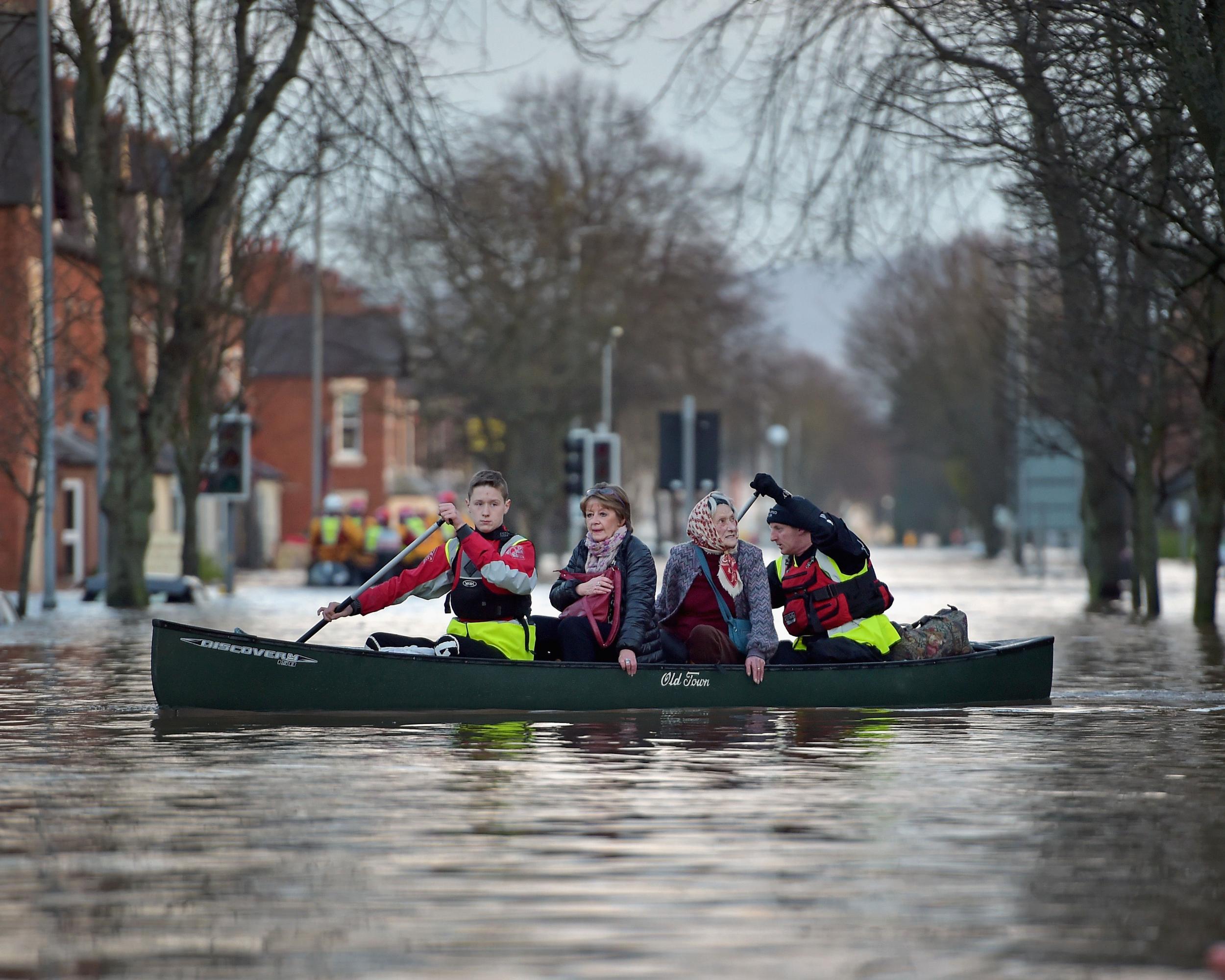Storm Desmond has exposed one of Cameron’s stupidest cuts
Private sector initiatives in place of local authority funding mean that many will be without a home this Christmas after the devastation wrought by extreme weather this weekend

Take a trowel, open up a hessian sack and fill it three quarters full with sand. Secure it with a tie wrap, and load it into the arms of a neighbour. Repeat.
One day late in June 2007 I spent the first half of the morning filling sandbags until the handful of sacks left at the end of our street were used up. The second half was spent building a makeshift fortification across the front of the house while the rain hammered down and the nearby river rose.
You quickly learn that water will always find a way. It will bubble up from the sewers before it comes gushing down the street, and it will rise up through the floorboards before it comes pouring through the letterbox, no matter how high you stack your sandbags. Once it’s trickling in, you turn your electricity off, carry everything upstairs and pack your bags. For my family and the residents of my street in Barnsley the following months were marked by hotel living, temporary accommodation and industrial dehumidifiers drying the house out – not that they can ever get rid of the stench. We were fortunate enough to have insurance; many were not.
Sadly the story will now be similar for thousands across Scotland, the North West and Ireland. Never mind Christmas, Storm Desmond will throw lives into disruption for months to come. Last year, a parliamentary briefing estimated one in six properties across the UK are at risk of flooding, due in part to an ageing drainage and flood defence infrastructure. The expectation that flooding will become more common in the future is widely held among politicians as climate change worsens and drainage land is developed.
It might come as a surprise then that since 2010 the government has slashed the budget for flood defence maintenance and related capital expenses, which rose 33% under Labour following the 2007 floods. As the National Audit Office warned in 2014, cutting the maintenance budget not only puts more people at risk, but actually costs the public purse more in the long term.
Despite David Cameron’s assurances that “money is no object” during the relief effort following floods in February 2014 and his championing today of the Bellwin scheme which will bail out overstretched local authorities, such a fire fighting approach to flood damage is far more expensive than prevention. Like me stacking my makeshift sandbags against the rising tide, Cameron’s costly solution is to throw money at the water once it’s already too late.
This flood strategy is gambling with people’s homes and lives, and frittering public money away in a false economy. Put simply, floods are costing us more in every way because the government won’t invest in the public infrastructure properly. Instead, it opts for ideologically-driven ‘Big Society’-type initiatives which roll back public spending in the blind faith that the private sector will come to the rescue.
Except the private sector hasn’t come to the rescue at all; the 2011 Flood and Coastal Erosion Resilience Partnership Funding policy hoped central government spending could free fall while the hole is plugged by partnerships involving the private sector, hazily-defined ‘communities’, and local authorities. By 2012 private funding had amounted to a paltry £2.6m to the embarrassment of former environment secretary Caroline Spelman. Defra now keeps the figures under wraps as a matter of ‘commercial confidentiality’.
While hamstrung local authorities struggle to cope under debilitating budget cuts, Cameron will now head to the Lake District for a photo opportunity in his designer wellies, talking the good talk of recovery and ‘clean up’. For those who are now spending Christmas in a B&B and will be trying to rid the wallpaper of the smell of sewage into the New Year, it will be too little, too late.
Craig McVegas is Commissioning Editor at Novara Media.



Join our commenting forum
Join thought-provoking conversations, follow other Independent readers and see their replies